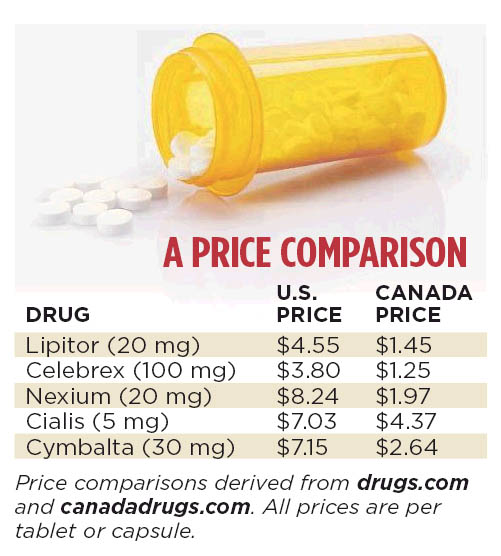A federal judge has struck down a 2013 law that allowed Maine residents to buy prescription drugs by mail from other countries, often at a significant discount.
U.S. District Court Judge Nancy Torresen ruled Monday that Maine’s law circumvented federal law, which permits state-to-state drug sales but prohibits international imports. Her decision renders the law invalid, although the state can appeal.
The primary plaintiffs in the case – the Maine Pharmacy Association and the Retail Association of Maine – praised the decision, but former state Sen. Troy Jackson, who sponsored the bill that became law, was disappointed.
“The pharmaceutical industry wins these things 10 out of 10 times, so I’m not surprised,” said Jackson, a Democrat from Allagash.
Timothy Feeley, spokesman for the Maine Attorney General’s Office, said no decision has been made on an appeal. He did say that, in light of the decision, “Congress and the FDA should re-examine their policy toward importation of prescription drugs.”
Maine’s 2013 law was the first of its kind in the nation. It was passed to address a 2012 decision by then-Attorney General William Schneider that halted the popular CanaRx program, which allowed Mainers to buy cheaper prescription drugs across the northern border.
The law identified four countries from which residents could buy prescriptions over the Internet – Canada, Australia, New Zealand and the United Kingdom. Those countries were chosen because they have similar safety regulations and oversight, but can charge less for drugs because of deals with pharmaceutical manufacturers.
The bill passed easily through the Legislature despite aggressive lobbying by the Maine Pharmacy Association and others.
Those groups then filed the federal lawsuit in September 2013, claiming that the new law was a threat to public safety because international pharmacies are not licensed or regulated as closely as pharmacies in the United States.
“Maine pharmacists are relieved that Judge Torresen’s ruling ensures the safety of prescription drugs for Mainers by upholding federal laws that are designed to prevent unapproved and substandard drugs from coming into the United States,” said Kenneth McCall, past president of the Maine Pharmacy Association.
Added Curtis Picard of the Retail Association of Maine, also a plaintiff: “We believe the court ruled correctly. All along, we warned that the law violated federal laws and this ruling proves that. Maine people can be assured that the prescriptions that are filled by Maine pharmacists are approved medications.”
The Pharmaceutical Research and Manufacturers of America hailed the decision as well.
“This is a significant victory for patients,” John Murphy, the trade group’s associate general counsel, said in a written statement. “It confirms the important role the (Food and Drug Administration) plays in regulating the drug supply chain and protecting consumers from counterfeit and adulterated medicines that may be inserted into an unregulated supply chain like the one Maine sought to facilitate.”
Jackson, the bill’s sponsor, said all the decision does is allow drug makers to continue holding a “monopoly” on prescription drug sales in this country.
“The pharmaceutical lobby has as much power as anyone,” he said.
The initial suit asked for an injunction to halt the law’s implementation, but that was not granted. That means Mainers had the ability to purchase prescription drugs from other countries under the law for more than a year.
However, no state agency tracked those sales, so there is no way to quantify how many people might be affected by Torresen’s ruling.
The CanaRx program, which was established in 2003, served about 1,000 patients each year, mostly state and municipal employees, including in Portland.
Jackson believes many more people were taking advantage of the new law that is now invalid.
“There is a lot more at stake for people trying to battle the crushing costs of prescription drugs,” he said.
Send questions/comments to the editors.




Success. Please wait for the page to reload. If the page does not reload within 5 seconds, please refresh the page.
Enter your email and password to access comments.
Hi, to comment on stories you must . This profile is in addition to your subscription and website login.
Already have a commenting profile? .
Invalid username/password.
Please check your email to confirm and complete your registration.
Only subscribers are eligible to post comments. Please subscribe or login first for digital access. Here’s why.
Use the form below to reset your password. When you've submitted your account email, we will send an email with a reset code.